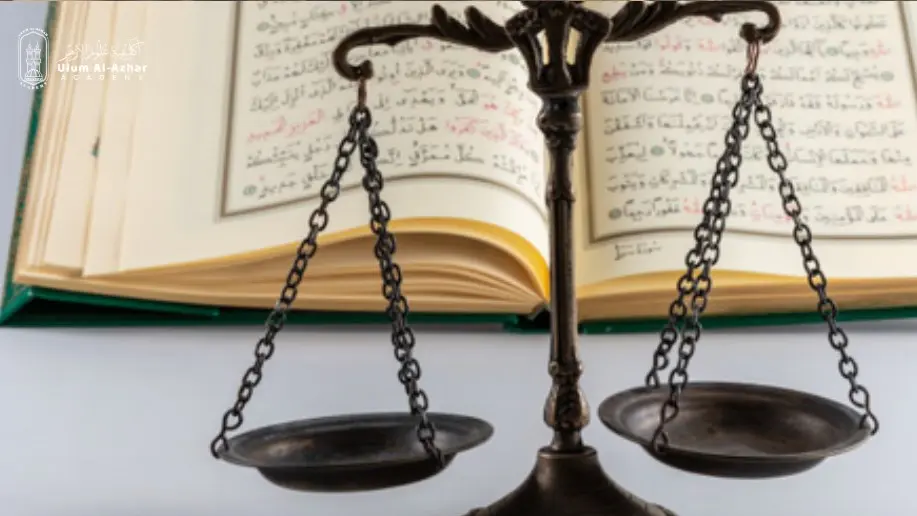
Fiqh Meaning and 5 Reasons Why Its Important in Islamic Law
It is essential to understand Fiqh meaning and how it affects Islamic law. Fiqh is a means of understanding and applying Islamic teachings. It shows us how to correctly implement what we learn from the Quran and Sunnah.
In this article, we will explore the meaning of Fiqh, its importance, and more. Let’s get started!
Table of Contents
What is Fiqh? Understanding Its True Meaning
Fiqh meaning in the Islamic traditions is the knowledge we possess and how to apply it in our daily lives as Muslims. The word Fiqh comes from the root faqiha (فَقِهَ), which means “to understand” or “to comprehend”. Therefore, Fiqh refers to the understanding of the Islamic laws and teachings derived from the Quran and Sunnah.
The Prophet said, “The best of you in the time of ignorance are the best of you in Islam if you have understanding.” [Ṣaḥīḥ al-Bukhārī 3374, Ṣaḥīḥ Muslim 2378, Grade: Muttafaqun Alayhi (authenticity agreed upon) according to Al-Bukhari and Muslim]
The Role of Fiqh in Shaping Islamic Legal Practices
Here is how Fiqh meaning shapes the Islamic practices and all aspects of life:
1. Codifying Divine Law:
Fiqh meaning is important because it translates the laws and rules of Shariah into guidelines that are easy to understand and apply. For instance, Fiqh explains to us how to pray, how to fast, and Zakat.
2. Fiqh meaning: Adapting to Contexts:
When the solution to something is not found in Quran and sunnah scholars turn to what is called Ijma (consensus) and Qiyas (analogical reasoning). The use of Fiqh meaning and applying it to come up with rules and regulations regarding the current circumstances needs a complete understanding of the Quran and Sunnah.
3. Maintaining Unity in Diversity:
The role of Fiqh and the understanding of Fiqh meaning is to adjust to the current circumstances and find solutions to various challenges while maintaining the unity of the Muslim Ummah.
4. Fiqh meaning: Balancing Individual and Societal Needs:
Fiqh teaches us how to worship Allah by explaining topics like prayer, fasting, and Zakat. Additionally, it includes social issues like governance and criminal justice to ensure the right implementation of Islamic beliefs and values.
Why Fiqh meaning is Important for Islamic Governance
Here are some reasons why Fiqh meaning is important for Islamic governance:
1. Establishing Justice and Rule of Law
In Islam, it is all about justice and doing what is right, as Allah Almighty says in the Quran:
“Indeed, Allah commands you to render trusts to whom they are due and when you judge between people to judge with justice.” (Quran 4:58)
Fiqh meaning is deriving rules and regulations that ensure justice.
2. Fiqh meaning: Legislative Guidance
Fiqh meaning offers rulings and guidance regarding:
- Economic systems like the prohibition of interest and encouragement of trade.
- Social contracts like family laws and inheritance distribution.
- Criminal justice like punishments for theft or murder.
3. Flexibility in Addressing Contemporary Issues
Fiqh meaning depends on Ijtihad (independent reasoning), Ijma (consensus), and Qiyas (analogical reasoning) to come up with solutions for various aspects of life that are not found in the Quran and sunnah to face modern challenges.
4. Conflict Resolution and Peace-building
Fiqh meaning provides solutions that can resolve disputes through arbitration and reconciliation and encourages social harmony.
5. Guidance for Leadership
Fiqh describes the traits and obligations of leaders, guaranteeing that they rule with honesty, equity, and a sense of responsibility.
The Difference Between Fiqh and Sharia in Islam
Here are the Key Differences Between Fiqh meaning and Sharia
| Aspect | Sharia | Fiqh |
| Source | Quran and Sunnah | Scholars interpretation of Sharia |
| Scope | General guidelines for divine guidance | certain decisions for practical application |
| Nature | Unchangeable and universal | Contextual and changeable |
| Flexibility | Unchangeable fundamental principles | Adjusts to new situations and obstacles |
| Authority | Absolute | relative and up for dispute among scholars |
| Examples | Obligation to pray | Details of how to pray |
Fiqh Meaning in Everyday Islamic Practices
Fiqh meaning is the means to understanding the laws found in the Quran and Sunnah and how to implement them in our daily lives. It refers to the guidelines that show us how to perform our religious duties and overcome daily life challenges following Islamic teachings.
For instance, Fiqh shows us how to offer the five daily prayers, how many Rakat, what to recite, and how to make up for the missed prayers.
How Fiqh Interprets and Applies Islamic Teachings
Fiqh meaning is the process of driving solutions and laws from primary sources like the Quran, Sunnah, consensus, analogy, and independent reasoning. It ensures that the Islamic teachings remain relevant across time and context.
Additionally, It provides us with practical guidance for worship, social interactions, economic dealings, and addressing modern challenges.
Learn Shariah and Fiqh with the best-specialized instructors from Al-Azhar University.
Join Ulum Al-Azhar today for our Fiqh program and learn from experienced Al-Azhar University instructors. Enjoy tailored lessons, one-on-one classes, simplified explanations, authentic Arabic pronunciation, and affordable prices with discounts.
Conclusion
Fiqh is the actual application of divine guidance in a Muslim’s life, not just a set of legal rules. Fiqh fills the void between timeless ideals and the realities of everyday life by interpreting the Quran and Sunnah.
It offers a framework for social harmony, legal justice, and personal piety while also being flexible enough to meet the changing needs of people. Knowing the fiqh meaning makes it clear how important it is to maintain the harmony between religion and reality, which keeps Islamic teachings current and available to everyone.
Don’t hesitate to reach out to the qualified professionals at Ulum Al-Azhar for assistance in learning more about fiqh and its rules. Book a free Consultation session and start learning!
FAQs
What is an example of a fiqh?
An Example of Fiqh is Fasting. For instance, it explains who must fast and how to make up for the missed fasts.
What are the basics of fiqh?
The rulings on Islamic law by competent scholars, known as fiqh, are the living tradition of Islamic jurisprudence and serve as guidance for Muslims as they apply Shariah to their daily lives.
What is fiqh English dictionary?
Fiqh in the English dictionary means “understanding in depth”.


